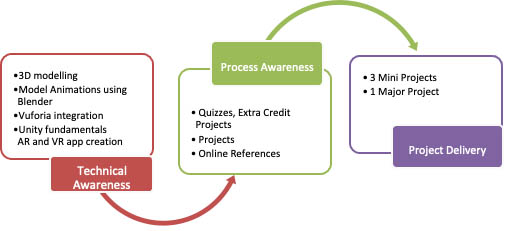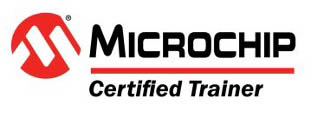Summer Industrial Training and Internship Program
on
Data Analytics
on
Data Analytics

Eduvance conducts a 30-day Summer Industrial Training and Internship Program (SITIP 2021) on Data Analytics.
The focus of this internship is to give the student a hands-on experience to one of the hottest technologies that is revolutionizing the computer industry. Data analytics is a gateway to the advanced domain of Artificial Intelligence which is utilized in almost all industrial as well as commercial applications around the world.
This internship will focus on concepts of Python programming, Data Filtering and Analysis, Machine Learning fundamentals, different algorithms and projects based on them. The internship will be conducted on the Project and Outcome based Methodology with hands-on labs.
DURATION
- The training will be for a total of 120 hours of duration (4 hours per day with alternate lab sessions).
COURSE CONTENTS
SECTION 1: PYTHON PROGRAMMING
Module 1
- Basics of Python Scripting
1.1 Basics of Python
1.1.1 Interpreter vs compiler
1.1.2 Basic Python syntax
1.1.3 Data types conversion
1.1.4 Native data types of Python – lists, dictionaries, tuples
- Conditional Statement in Python
2.1 Conditional execution
2.1.1 If else
2.1.2 for
2.1.3 while
Module 2
- Modular programming in Python
3.1 Functions in python
3.1.1 Creating user defined functions
3.1.2 Calling functions
- Advanced scripting techniques in python
4.1 List comprehensions in Python
4.1.1 Using functions in Python (variable inputs also)
4.1.2 Use of one line for loops
4.1.3 Lambda, reduce, map functions
4.2 Exception Handling (optional)
4.2.1 Try/Except
4.2.2 Custom Exception method
4.3 File I/O(optional)
Module 3
- Understanding Multidimensional Arrays
5.1 Introduction and installation of numpy
5.2 Array creation
5.3 Array indexing
5.4 Array slicing
5.5 Boolean indexing (optional)
5.6 Mathematical operations on matrices
- Data visualization in Python
6.1 Installing matplotlib
6.2 Matplot object api – axes, figure objects
6.3 Subplot nrow and ncols
6.4 Legend labels and titles
6.5 Setting colors, Linewidths and Linetypes
6.6 Axis range and Axis grid
6.7 Visualization matplotlib – 2d scatter plot, Bar, Histogram
Module 4
- Understanding Data Analytics
7.1 Creation of Dataframe with Pandas
7.2 Indexing Dataframe with pandas
7.3 Indexing using labels in pandas
7.4 Pandas series objects
7.5 Pandas Dataframe operations
7.6 Boolean indexing with pandas
7.7 Pandas plotting
7.8 Missing values-data refining
SECTION 2: MACHINE LEARNING
Module 5
- Introduction to Machine Learning
8.1 Components of Artificial Intelligence
8.1.1 Machine Learning
8.1.2 Deep Learning
8.2 Classification of Machine Learning
8.2.1 Association Learning
8.2.2 Supervised Learning
8.2.3 Unsupervised Learning
- Association Learning
9.1 Market basket analysis
9.2 Apriori algorithm
9.3 Creating Grocery Cart Application
Module 6
- Supervised Learning – Regression
10.1 Linear Regression
10.1.1 OLS method
10.1.2 Lab based on OLS Method
10.1.3 SGD method
10.1.4 Lab based on SGD Method
10.2 Polynomial Regression
10.2.1 Lab based on Polynomial Regression
- Supervised Learning – Classification
11.1 Perceptron
11.1.1 Lab based on Perceptron
11.2 Support Vector Machine
11.2.1 Lab based on Support Vector Machine
11.3 Decision Tree
11.3.1 Lab based on Decision Tree
Module 7
- Unsupervised Learning – Clustering
12.1 K-means Clustering
12.2 Elbow Method
12.3 Lab based on K-means
Module 8
- IBM Cloud Fundamentals
13.1 Setting up the IBM Cloud
13.2 IBM cloud services
14: IBM Watson Fundamentals
14.1 Understanding IBM Watson machine Learning architecture
14.2 Provisioning different services useful for ML application
14.3 Machine Learning Implementation on IBM Watson and Cloud Platform
14.3.1 Lab: Working with IBM Datasets
14.3.2 Lab: Building regression-based models with IBM Watson services
14.4 Implementing case study on IBM Cloud Platform
14.4.1 Lab: Interfacing with IBM machine learning API
14.4.2 Lab: Calculating performance and accuracy
ELIGIBILITY
- Students of 2nd, 3rd and 4th year of Electronics, Electronics and Telecommunication, Information Technology, Computer Science, Biomedical Engineering and Electrical Engineering students of B.Tech are eligible for the training program.
COURSE OUTCOMES
- Participants will learn Python programming from basics.
- Participants will learn different Machine Learning algorithms and their applications.
- The training program includes hands-on labs on Data Analysis and Machine Learning resulting in exploration of concepts.
- Participants shall become ready to solve challenges from an industry-based perspective.
CERTIFICATE
- Eduvance certificate on Machine Learning using Python
- Internship letter from Eduvance
NUMBER OF PARTICIPANTS (PER BATCH)
- Minimum – 40
- Maximum – 80
COST (ONLINE COURSE)
- 5,000/- per student (including 18% GST)
REGISTRATION LINK: https://forms.gle/g2bZfDyRPtx6TdCk6
The E-certificate will be provided on successful completion of the programme.
About Eduvance
Eduvance is founded by Ph.D. alumni from U.S. universities. We are dedicated towards providing participants with state-of-the-art training in technology. We do this by introducing participants to projects and research topics that are at par with leading universities in the United States. This will make the participants technically sound and prepare them for future challenges. We assist participants write and present technical papers. We are advised by U.S. based researchers, faculty and industry professionals that have a proven track record in their field.
Industry Affiliations



